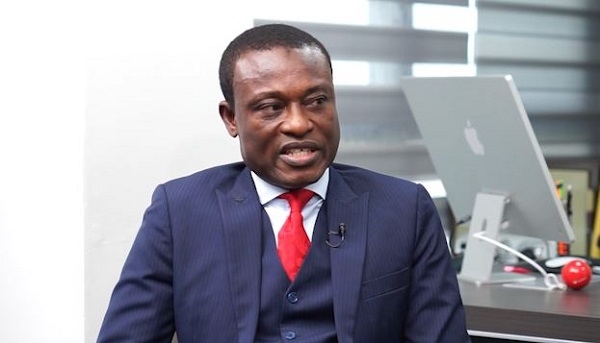Bio assumes ECOWAS leadership, vows to promote democracy, regional reform
President Bola Tinubu of Nigeria on Sunday formally bowed out as Chairman of the Economic Community of West African States (ECOWAS) after two years of steering the bloc through a period of political turbulence and reform.
This came as President Julius Maada Bio of Sierra Leone formally assumed the chairmanship of the regional bloc, promising a bold, people-centred agenda focused on restoring democratic order, revitalizing security cooperation, deepening economic integration, and rebuilding institutional trust.
Tinubu presided over the 67th Ordinary Session of the Authority of Heads of State and Government of ECOWAS, held at the Presidential Villa in Abuja, where leaders from across the sub-region gathered to deliberate on pressing security, economic, and democratic challenges.
His exit marked the end of a tenure defined by diplomatic tension, regional realignments, and efforts to reposition ECOWAS as a more assertive force for stability and integration.
Elected on July 9, 2023, at the 63rd Session in Bissau, Guinea-Bissau, and re-elected for a second term on July 7, 2024, in Abuja, Tinubu’s leadership came at a time of mounting instability in West Africa. His second term, seen as a consensus move, was aimed at providing continuity in a time of heightened uncertainty following military takeovers in several member states.
During his tenure, the regional bloc faced unprecedented challenges, including withdrawal threats from Mali, Burkina Faso, and Niger—countries now ruled by military juntas following coups that disrupted democratic governance. ECOWAS, under Tinubu, responded with sanctions and diplomatic efforts to push for a return to civilian rule.
Despite sanctions and pressure, the region saw limited progress in reversing these coups, leading to questions about ECOWAS’s capacity to enforce democratic norms. Tinubu consistently called for dialogue and regional unity, advocating a blend of firm diplomacy and mediation.
He also championed institutional reforms within ECOWAS, seeking to bolster peacekeeping operations, revive joint military frameworks, and push forward the long-delayed plan for a single regional currency known as the “Eco.” These efforts, though yet to fully materialize, signaled a renewed vision for economic integration and collective security in West Africa.
Despite stepping down, Nigeria’s influence within the 15-nation bloc remains significant. As the region’s largest economy and most populous country, Nigeria continues to play a key role in shaping ECOWAS policies and responses.
Tinubu delivered a closing address reflecting on his tenure, highlighting gains, acknowledging setbacks, and offering guidance for the future.
Meanwhile, in his acceptance speech at the 67th Ordinary Session held in Abuja on Saturday, Bio said he was “humbled and grateful” to lead the regional bloc at a time of complex and urgent challenges facing West Africa.
“I accept this responsibility with full awareness of the magnitude of the task ahead and the complexity of the moment,” he said, pledging to uphold the values of peace, unity, and inclusive development.
President Bio paid glowing tribute to his predecessor, Nigerian President Tinubu, whose two-year tenure he described as one marked by “unwavering commitment to regional dialogue, economic recovery, and peacebuilding.”
“I am humbled to build upon the strong foundation you have established,” he said, thanking Tinubu for his experience and leadership.
Bio noted that the region is at a historic inflection point, beset by overlapping crises including insecurity in the Sahel and coastal states, terrorism, illicit arms flow, political instability, and transnational crime. He also decried the erosion of democratic norms and increasing pressures on constitutional governance.
“The democratic space is under strain in parts of our region. The constitutional order has been disrupted,” he warned. “Yet across West Africa, citizens—especially our youth—are demanding not just elections, but accountability, transparency, and a fair stake in national life.”
On the economic front, Bio cited persistent external shocks such as global inflation, food insecurity, energy shortages, and mounting debt as threats to regional stability. He also underscored the growing impact of climate change, including coastal erosion, floods, and droughts, which are already displacing livelihoods.
Despite these challenges, he emphasized that the region’s “vibrant and youthful population, abundant natural resources, and entrepreneurial spirit” provide grounds for hope and transformation.
To reposition ECOWAS as a more dynamic and responsive institution, President Bio laid out a four-point agenda to guide his chairmanship:
Bio pledged to constructively engage transitional governments and strengthen democratic institutions rooted in the rule of law.
“We must support member states in building stronger democratic institutions,” he said.
He called for a comprehensive overhaul of the regional security framework, including better intelligence sharing and a unified rapid response to threats.
“We must confront new threats with unity and resolve,” Bio stressed.
The new chair identified the ECOWAS Trade Liberalization Scheme, regional infrastructure, and cross-border value chains as key tools for job creation and resilience.
“These must become engines of growth, especially for our women and youth,” he said.
Bio emphasized the urgent need for ECOWAS to reform itself to become more transparent, efficient, and accountable.
“This is how we will rebuild trust in regional cooperation,” he declared.
Capping his address with a call for unity and optimism, President Bio rejected the narrative of regional decline and instead envisioned a prosperous West Africa anchored in cooperation and moral clarity.
“West Africa’s future is not one of decline, but of possibility—if we act with courage, urgency, unity, and moral clarity,” he concluded. “Let us rise to the moment together, not as separate nations, but as a unified community of destiny.”
His speech was met with resounding applause from regional leaders, diplomats, and delegates gathered in Abuja, as ECOWAS ushers in a new phase of leadership at a time of critical transition and opportunity.
As ECOWAS looks toward a new chapter, the transition signals not just a change in leadership, but a pivotal moment to reassess the bloc’s priorities amid growing calls for reform, resilience, and unity in a region still grappling with instability but aspiring toward collective progress.











